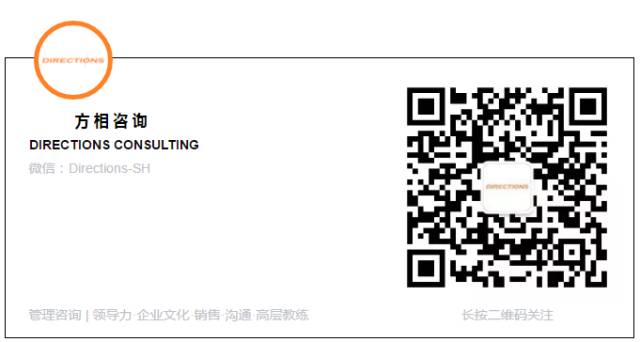|
Hi!
How time flies, and we are now at the end of 2014.
Time to plan what you would want to achieve in 2015.
With the economy slowing, perhaps one of the key things to do in 2015 is to improve the quality of your sales training. Do note this is NOT to say you increase, for you may need to spend less and achieve more for your sales training and coaching in your company.
Hence, this month's topics:
This issue's main article is on "How to Create a Sales Training Plan that Drives Sales Performance", and we explore how you can spend wisely on your sales training and coaching initiatives, and find reliable ways where you can get better sales results.
In brief:
To read the rest of this newsletter, pls. click here (http://www.psycheselling.com/page4.html).
Complimentary eBook, A Leader’s guide to Successfully Sell with Insights, – click here. How to Create a Sales Training Plan that Drives Sales Performance
by
Dario Priolo
Given the expected long-term economic slowdown that is expected in China and many parts of Asia, many companies are pondering if there's still a need to expand the sales force, and if there should be increases in sales training budget.
The fact is,
whether you are expanding or reducing the
size of your sales team, the only way to get
ahead when growth is slower and competition
tougher, is to continuously sharpen the
selling skills of your sales people.
However, the
biggest challenge that many companies faced
in implementing sales training is that if
the
training actually
will result in more and better sales
results for the sales
team. Will the sales people use the
skills learnt in the sales training and win
more sales as a result? Or worse, will
the sales training be relevant enough to the
sales people that they provide the right
skills to deal with real world challenges?
Before we even
look into the sales training itself, perhaps
it may be wise to first look at the bigger
picture Organizational Strategy and Goals
Start by thinking about
the big picture: What is your
business trying to accomplish? How
has that changed in the last year? A
SWOT analysis can help you start to narrow
your focus on what you need to do
differently.
Now, take your focus down
from the organizational to the
individual level. What do your
sales leaders, sales managers, and
sales people need to do differently to
achieve your objectives and
goals? How significant of a
change is that? The degree of
change will dictate the intensity and
direction of your developmental
efforts.
Don't over rely on surveys and questionnaires to plan for your upcoming sales training. Many years ago I was tasked to conduct a Sales Negotiations training for a pumps and valves provider in the oil and gas industry. It turned out that since most of their sales were achieved as a result of bidding and tendering, they don't really conduct sales negotiations in the "traditional" sense.
So why did they hire a
trainer to conduct a sales
negotiations training for them?
That was due to their HR conducting a
survey on what kinds of training do
the sales people wanted, and everybody
ticked on the box for sales
negotiations. What they actually
wanted was how to improve their
understanding of the hot buttons that
need to be addressed within the RFP
(Request For Proposals) by their
customers, rather than the act of
face-to-face negotiations.
However, since such a training was not
presented on a list, they ticked the
closest thing that was listed, which
was actually worlds apart. Determine Needs and
Sales Training Budget There are a number of factors and details to include when preparing your formal budgetary request:
Justify the Value of
the Training
Need help in getting more and better results from your sales team in 2015? Simply e-mail info@directions-consulting.com or call +86-136 7190 2505 or Skype: cydj001 and arrange to buy me a mocha. All information shall be kept in confidence. Power Breakfast Hour: 21 Jan 2015 How to Create a Training and Coaching Plan that Drives Performance
VENUE: Crowne Plaza Shanghai • 400 Panyu Road (near Fahuazhen Road) • 上海银星皇冠酒店 • 番禺路 400 号 (靠法华镇路) DATE: Wednesday, 21 Jan 2015
TIME: 08:00 a.m. - 10:00 a.m.
PRICE: RMB 200 ONLY!
To make this a more conducive discussion, we are expecting a small group of about 15 people only. The room can only take in 18, so please register early to avoid disappointments. Please e-mail your registrations too sales@directions-consulting.com
Pls. check out our web sites www.directions-consulting.com and www.psycheselling.com/page4.html for more inspiration. Tips
for Hiring Managers: by
Max Nisen
Google has spent years analyzing
who succeeds at the company,
which has moved away from a
focus on GPAs, brand name
schools, and
interview
brain teasers. Graduates of top schools can lack “intellectual humility”
People that make it without
college are often the most
exceptional
Talent exists in so many places
that hiring managers who rely on
a few schools are using it as a
crutch and missing out. Bock
says:
Learning ability is more important than IQ
Succeeding in academia isn’t
always a sign of being able to
do a job.
Bock has
previously said
that college can be an
“artificial environment” that
conditions for one type of
thinking. IQ is less valuable
than learning on the fly, Bock
says: Directions Management Consulting
Directions Management Consulting is the partner of LeadershipIQ in China and Asia. LeadershipIQ helps more than 125,000 leaders every year through the facts drawn from one of the largest ongoing leadership studies ever conducted is used to help companies apply resources where the best possible results be achieved.
In addition, Directions Management Consulting is a leading provider of sales performance, innovation and experiential learning solutions in China and many parts of Asia.
Using the Belbin Team Role Profiling, Directions Management Consulting helps develop high performance teams and leadership at every level.
Psycheselling.com is the sales performance arm of Directions Management Consulting specialising in conducting training, research and consulting services for sales managers and their team.
Raybattle is the strategic partner of Directions Management Consulting specialising in experiential learning events and management retreats.
Currently, Directions Management Consulting has served clients such as Delphi Packard, InterContinental Hotels Group, Alcoa Wheels, Standard Chartered Bank, Merial, ThyssenKrupp, Lowe's Global Sourcing, Lear, Kulzer Dental etc. Directions Management Consulting will increase its efforts to conduct leadership studies in China and other parts of Asia, so that more companies apply resources where the best possible results be achieved in this part of the world. Enquiries and suggestions, pls. e-mail info@directions-consulting.com or visit www.directions-consulting.com
|

